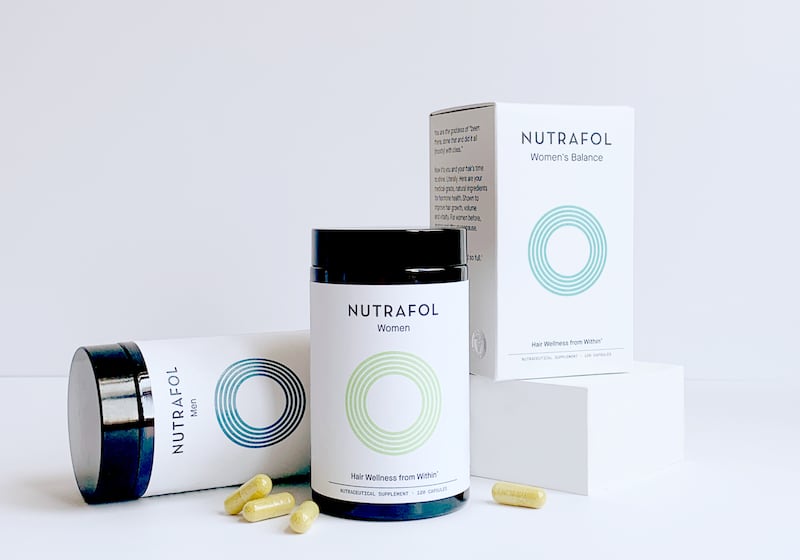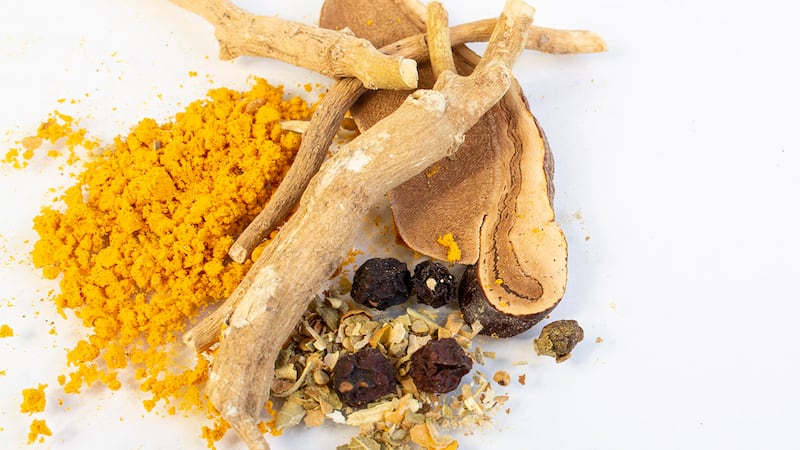When thinking about health, there are some hereditary cards everyone is individually dealt from birth. But lifestyle choices over the years—like what we eat, how often we exercise, and how we manage stress—all factor in, too.
The health of your hair growth is similar. Even though genetics and aging have influence over the growth rate, strength and size of hair follicles; lifestyle factors play an important role. Understanding how these external factors influence hair growth is important for making healthy lifestyle choices. Instead of just treating your hair with topical treatments, take an integrative and personalized approach. A healthy diet, exercise, self-care, and natural supplements like Nutrafol Women, Women’s Balance, or Nutrafol Men (which are science-backed with ingredient research) all work together to keep hair looking healthy and at its best.!
Nutrition
If you are what you eat, you can imagine how what you eat every day plays into how your hair grows, too, right? It turns out, nutrition isn’t everything when it comes to healthy hair—but it is important, nonetheless. Getting enough protein, drinking plenty of water throughout the day, and choosing iron and zinc-rich foods can all contribute to healthy and strong hair. Studies also show a promising connection between Omega-3s and strong hair growth. Foods rich in Omega-3s include oily fish like salmon and mackerel, nuts and seeds like flax and chia seeds, and flaxseed and soybean oils. Taking a supplement like Nutrafol with foods that have healthy fats, like omega-3s can help with absorption of certain botanicals.
On the other end of the spectrum, research shows that nutritional deficiencies—like iron deficiency anemia or a zinc deficiency—may result in hair loss. Eating plenty of iron and zinc-rich foods like dark leafy greens, whole grains, lean beef, legumes, nuts, and seeds can help prevent deficiencies. (If you’re concerned you may be nutritionally deficient, see your doctor; they can perform a blood test to confirm.)

Of course, no one’s diet is perfect all the time. This is where nutritional supplements can play a strong role by helping fill the gaps and keep hair healthy and glowing. Hair wellness company, Nutrafol, has developed a natural supplement formulated with 22 botanical and nutritionally rich ingredients like hydrolyzed collagen and a variety of amino acids to support hair health. Hydrolyzed collagen is moisturizing, helps with the spread and absorption of nutrients, and can support healthy hair growth. Their supplements are also standardized, bio-optimized, and sourced from the highest quality ingredients.
Stress
Stress is sometimes inevitable. But stress is another (somewhat) controllable factor that affects hair health. Under constant stress and pressure from work, family, and other societal pressures, the internal systems that affect hair growth can become compromised. In fact, stress can contribute to the onset of alopecia areata (where the body’s immune system attacks hair follicles) and other hair loss disorders like Telogen effluvium, research shows.
Stress impacts hair because high cortisol levels in the body may cause hair follicles to go into a “resting” phase or stop growing entirely. High amounts of stress can eventually lead to hair falling out, either in small amounts or in larger patches.
Finding ways to keep stress under control is essential. Calming rituals like yoga, meditation, or just taking a few deep breaths when life gets crazy can all go a long way. In addition, Nutrafol supplements are formulated with ashwagandha, an herb that helps relax the central nervous system and improve resistance to stress. Ashwagandha can help lower elevated cortisol, which can damage hair. They also contain curcumin, a botanical known to support a healthy inflammatory and immune response, which may be compromised in times of high stress.

Environmental factors
Environmental stressors can include a broad range of factors that can impact hair wellness, like exposure to toxins, pollution, and even smoking—all of which can be hazardous to hair follicles.
Living in high pollution environments can lead to sensitive scalp syndrome. Symptoms include itching, dandruff, oily scalp, and even pain in the hair root, research shows. Air particles like dust and smoke can settle on the scalp and cause these symptoms. Over time, this can lead to hair damage.
Smoking or exposure to second-hand smoke is also hazardous for hair. Smoking can cause damage to the DNA of the hair follicle, research shows. It can also cause oxidative stress in the body, a factor that can lead to hair damage and even hair loss. Second-hand smoke isn’t healthy for hair either. Quitting smoking or encouraging your loved ones to quit isn’t just good for your lungs — it can help prevent hair damage.
It’s not always possible to move or make lifestyle changes, but taking steps to protect the hair from environmental stressors are important nonetheless. Washing hair after it is exposed to pollutants, wearing a hat outdoors, or using a deep conditioner with protective ingredients can help. Taking supplements can also be beneficial for protecting your hair from environmental stressors like pollutants. Nutrafol supplements and Nutrafol Liver Support are formulated with ingredients known to increase antioxidants in the body and neutralize hair damaging toxins.
Takeaway
When it comes to your hair’s health, you may not always feel like you’re getting the results you’re after. There is a lot, however, that is within your control. Eating a healthy diet, reducing stress levels, and creating a healthy environment by spending time in nature (and no smoking!) are important ways to keep hair healthy and strong at any age. Taking a personalized approach with natural solutions with Nutrafol’s GrowthPlan® can also help keep the systems of the body in balance, especially where factors are out of your control.






